https://heathermonroe.medium.com/the-tragic-death-of-grace-brown-da714f6c2a30
Austin American-StatesmanAustin, Texas29 Nov 1906, Thu • Page 1

Grace Mae Brown, Public Domain Image, Wikimedia Commons
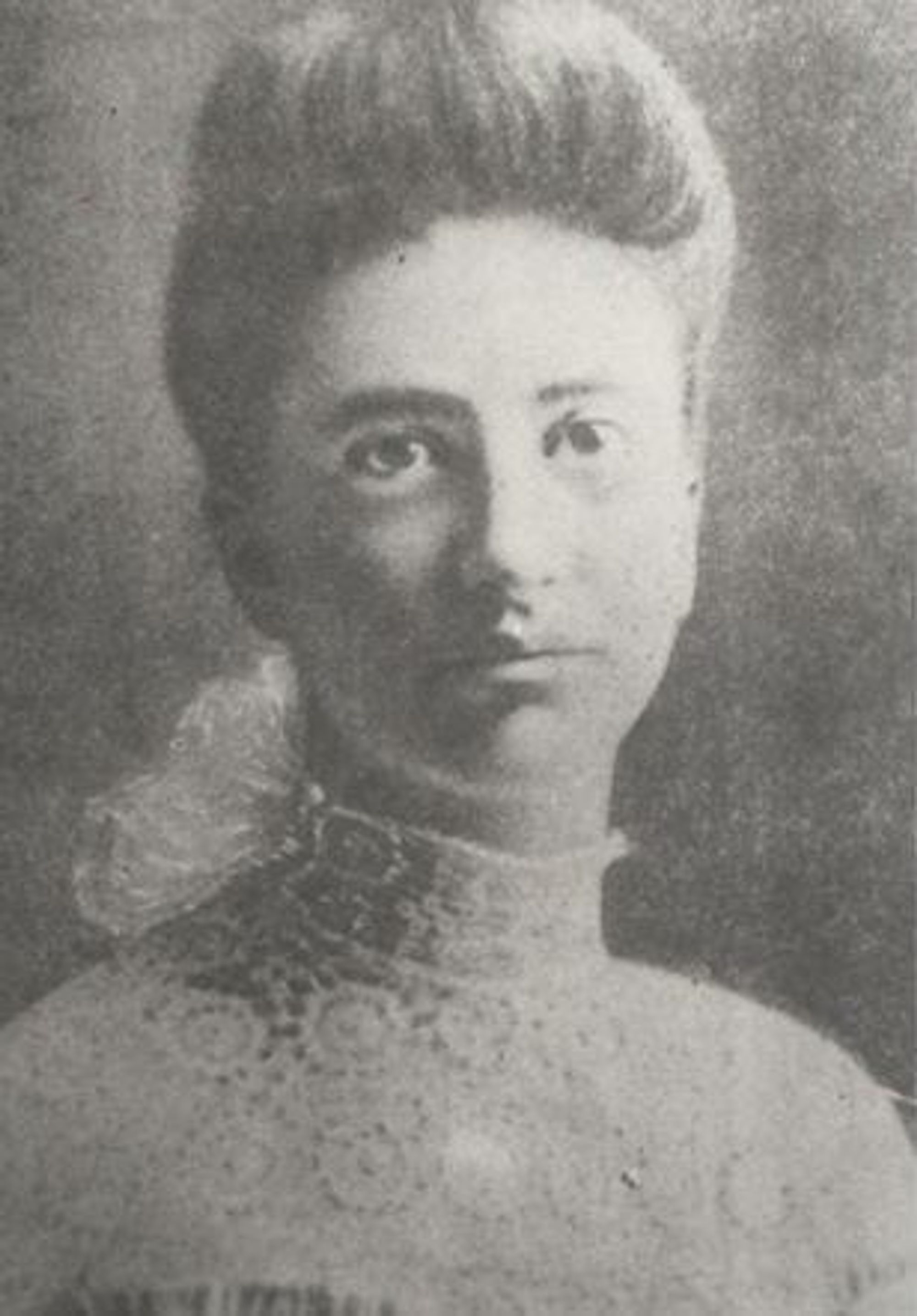
Grace Mae Brown was the pretty daughter of farmer Frank Brown and his wife, Betsy Minerva Babcock. She was born in South Otselic, New York, on March 20, 1886 — the fifth of nine children. Grace graduated from a one-room school at age 16. She moved to the nearby town of Cortland in 1904 to live with her sister after a brief stint as a farmhand in Norwich.
Grace was a lively young lady who loved singing and dancing and attended live music shows whenever she could. She especially loved a song called “Won’t You Come Home Billy Bailey,” and started using the name Billy to sign her correspondence.
Soon after the move to Cortland, Grace found work at the Gillette Skirt Factory on Miller Street. Here, she made the acquaintance of a young, handsome socialite named Chester Ellsworth Gillette, who happened to be the owner’s nephew.
Chester Gillette
Chester Gillette, Public Domain, Wikimedia Commons
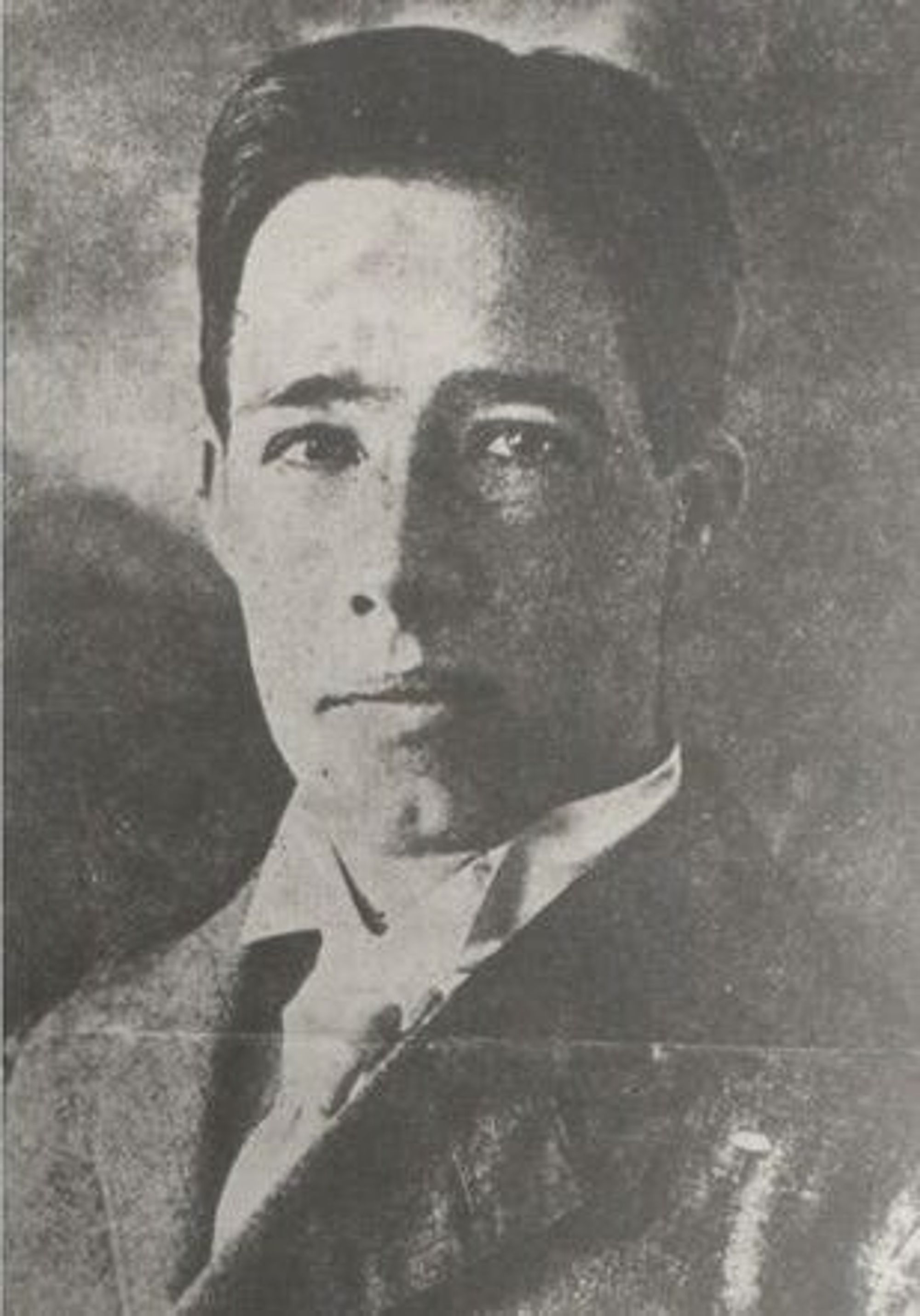
Chester was born on August 09, 1883, in Wickes, Montana. His parents were Frank, a silver miner, and Louisa Rice. When Chester was three, the family moved to Spokane, Washington. Unfortunately, the family lost everything they owned in the Great Spokane Fire of 1889.
After the tragic fire, the Gillettes became profoundly religious and joined the Salvation Army. In keeping with their religion, the family shunned worldly goods and possessions — including money. They frequently moved in the name of evangelism, making it difficult for Chester to receive a proper education.
In 1902, Chester’s wealthy uncle, Noah Horace Gillette, provided him the chance to attend Oberlin College’s Preparatory Academy in Ohio. Chester didn’t do well in school and left in 1903, so his uncle gave him a job working in his factory where he met Grace.
Gillette Skirt Company, Courtland, NY, Public Domain Image
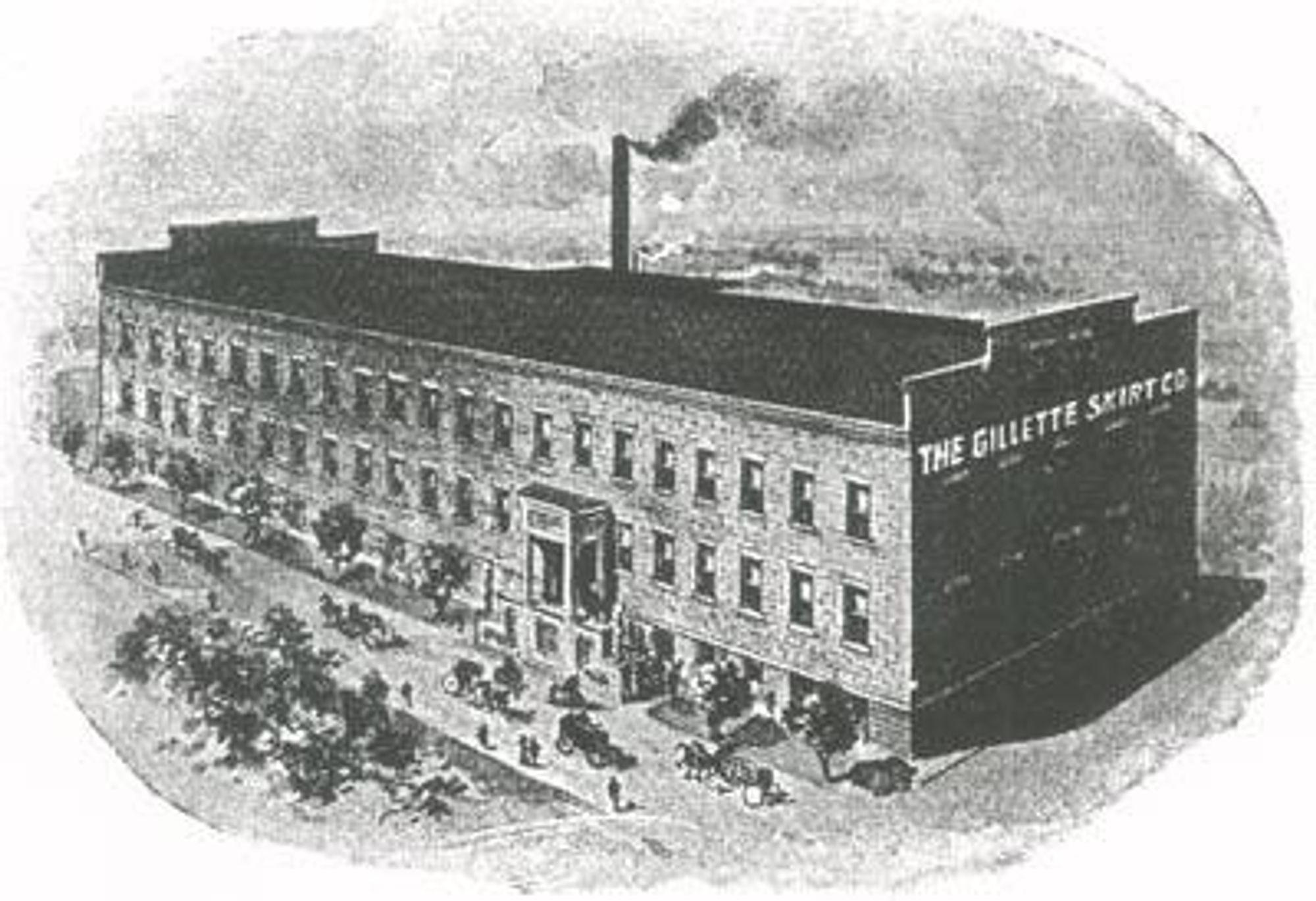
The Affair
Chester knew he was a catch in Upstate New York. He was decidedly handsome and enjoyed the perks of his uncle’s money. Grace must have been over the moon that such a desirable man took an interest in her. Unfortunately, Grace was only a notch in Chester’s belt.
The Gillette family was old money, and Grace was a simple but beautiful farm girl in Chester’s eyes. He didn’t mind having a sexual relationship with her, but he certainly wasn’t going to give her the privilege of his last name. He had his eyes on a socialite named Harriet Benedict, a girl of high social standing from a wealthy New York family.
In the Spring of 1906, Grace got pregnant, and everything changed. The affair could not remain casual. Grace unabashedly begged Chester to marry her, but he wouldn’t hear of it. She wrote letter after letter to try and help him understand the fear and shame she would experience if her family found out about the baby. Chester hardly acknowledged her.
“…Please write often, dear, and tell me you will come for me before papa makes me tell the whole affair, or they find out for themselves…”-Excerpt of Letter from Grace Brown to Chester Gillette, St. Louis Dispatch, November 21, 1906
In July of 1906, Chester invited Grace to go on a trip to the Adirondacks. Grace thought this would be the wedding trip that would make her troubles go away. She packed her entire wardrobe.
The plan was for Grace to meet Chester in DeRuyter, where they would catch a train to Utica, New York, and avoid detection by friends and family. Her family bid farewell to sweet Grace, not knowing that it would be the last goodbye.
Death
The couple stayed the night together at the Tabor Hotel in Utica, New York. In the morning, they ditched the hotel bill before riding the rails to Tupper Lake. They planned to visit a nearby lake the next day, but their plans were rained out.
Instead, they traveled to Big Moose Lake in Herkimer County and stayed at the Glenmore Hotel under the names Carl Graham of Albany, and Grace Brown of South Otselic to match Chester’s CEG monogrammed luggage.
Glenmore Hotel as it appears today, Courtesy of Kezee at Flickr

July 11, 1906, Robert Morrison rented a rowboat to Chester. Vacationers saw Chester and Grace boating, and even going onshore for a picnic earlier in the day. When the sun set over Big Moose Lake, Chester and Grace didn’t return the boat. Initially, Robert assumed the couple misjudged the size of the lake and ended up at another resort. When they didn’t come back on the second day, he formed a search party.
The party searched the lake by steamboat, and eventually found the little rowboat overturned. A young boy noticed a peculiar mass at the bottom of the lake and brought it to the attention of the crew. Searchers pulled up what they believed was garbage, to find it was the body of a woman. They immediately called the authorities.
The Glenmore at Big Moose Lake, ca 1907, Public Domain, Wikimedia Commons
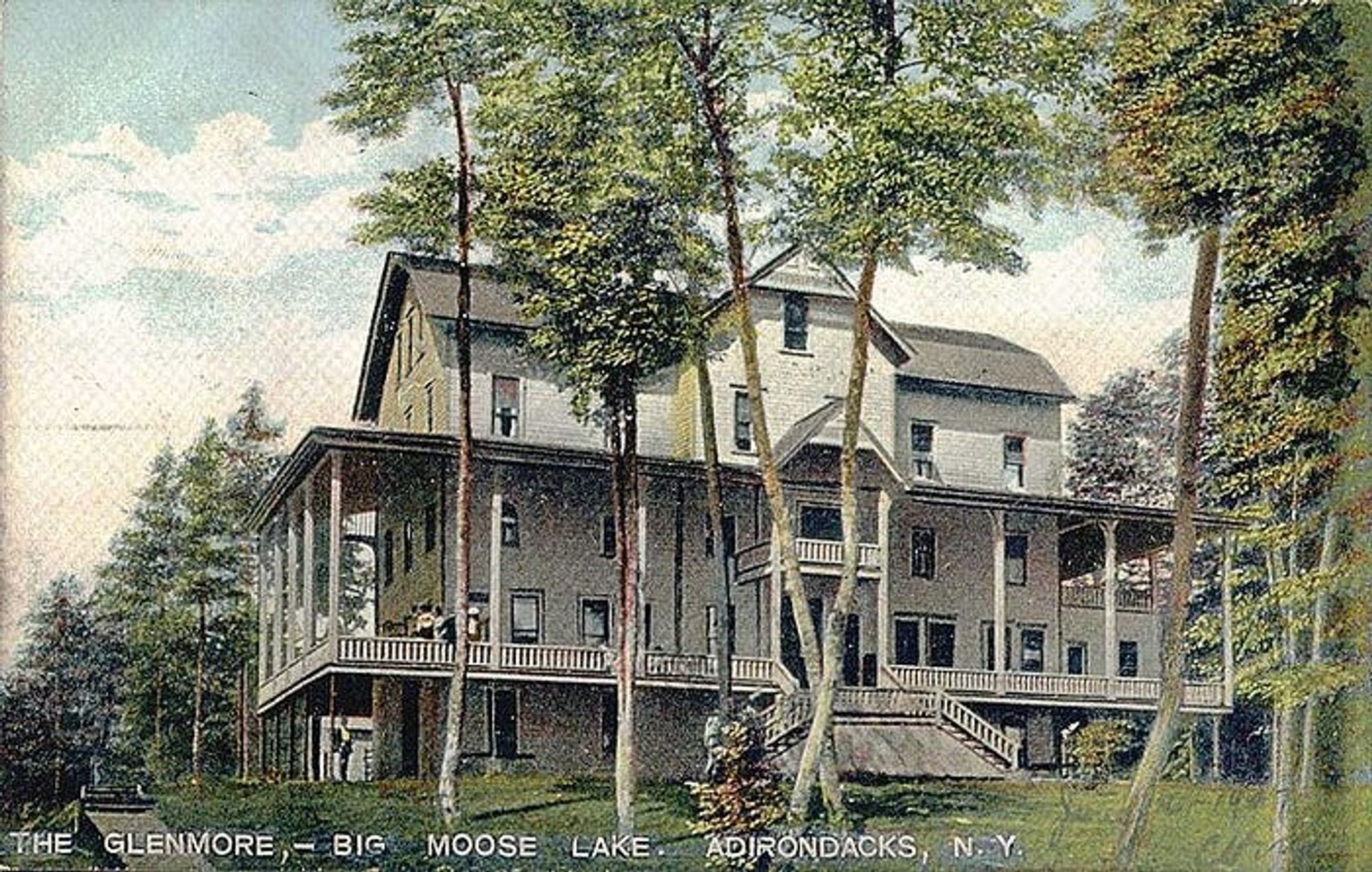
Investigation
Police responded right away, and a short investigation revealed the couple to be guests at the Glenmore, registered as Carl Graham of Albany, and Grace Brown of South Otselic. Searchers dragged the lake under the assumption a dead man was in it but turned up nothing. Upon informing the Brown family, authorities learned that Grace had not spent time with anyone named Carl Graham. She did, however, associate with Chester Gillette, and a search for Chester ensued.
Two men reported encountering a strange man in the woods around the lake. He wore a suit and asked them how to get to Eagle bay — a spot near Fourth Lake.
Officers pursued the same wooded path and located Chester at Arrowhead Hotel, where he spent the night socializing, laughing, and even bragging about a drowning back at Big Moose Lake that was not yet reported.
In the morning, District Attorney Ward, accompanied by Under Sheriff Austin Klock, approached Chester as he sat on the Veranda. Klock laid a hand on Chester’s shoulder.
“Have you noticed in the papers that Billy Brown has drowned on Big Moose?” Asked the Under Sherriff.
“No. Is that so?” Chester was trembling.
“Yes,” Klock said in a low and ominous tone, “and you’re under arrest for murder.”
Doctors conducted a post mortem examination on Grace’s body. They learned she was around four months pregnant. She was alive when her body entered the water.
Before she took her last breath, Grace suffered a beating that caused terrible bruising on her face and resulted in her death. This was no drowning.
Chester was asked to give a statement. He readily admitted he was with Grace when she died. Initially, he said she was despondent over the pregnancy and committed suicide. When confronted with the fact that Grace died from a beating to the face and head, he told a different story.
In this second story, Chester claims he stood up on the boat to reach his hat. When he did, the boat capsized and threw them both into the lake. Chester didn’t attempt to help Grace; he was afraid she would panic and drag him under as well. He shouted at her to grab hold of the boat. When she did, it turned over again, and Grace went under and never resurfaced.
Investigators immediately saw holes in Chester’s story. Firstly, other hotel guests who saw the couple said that Chester spoke harshly to Grace during their stay, although they couldn’t hear the topic of discussion. Chester also paced the halls nervously before the boat ride.
Chester’s clothing and luggage, which he claimed to have retrieved from the water, were completely dry. Chester’s version of events didn’t explain why he took such an unusual path to Arrow Head Inlet. Or most importantly — why didn’t he bother to report the incident to anyone?
The Philadelphia InquirerPhiladelphia, Pennsylvania12 Nov 1906, Mon • Page 16
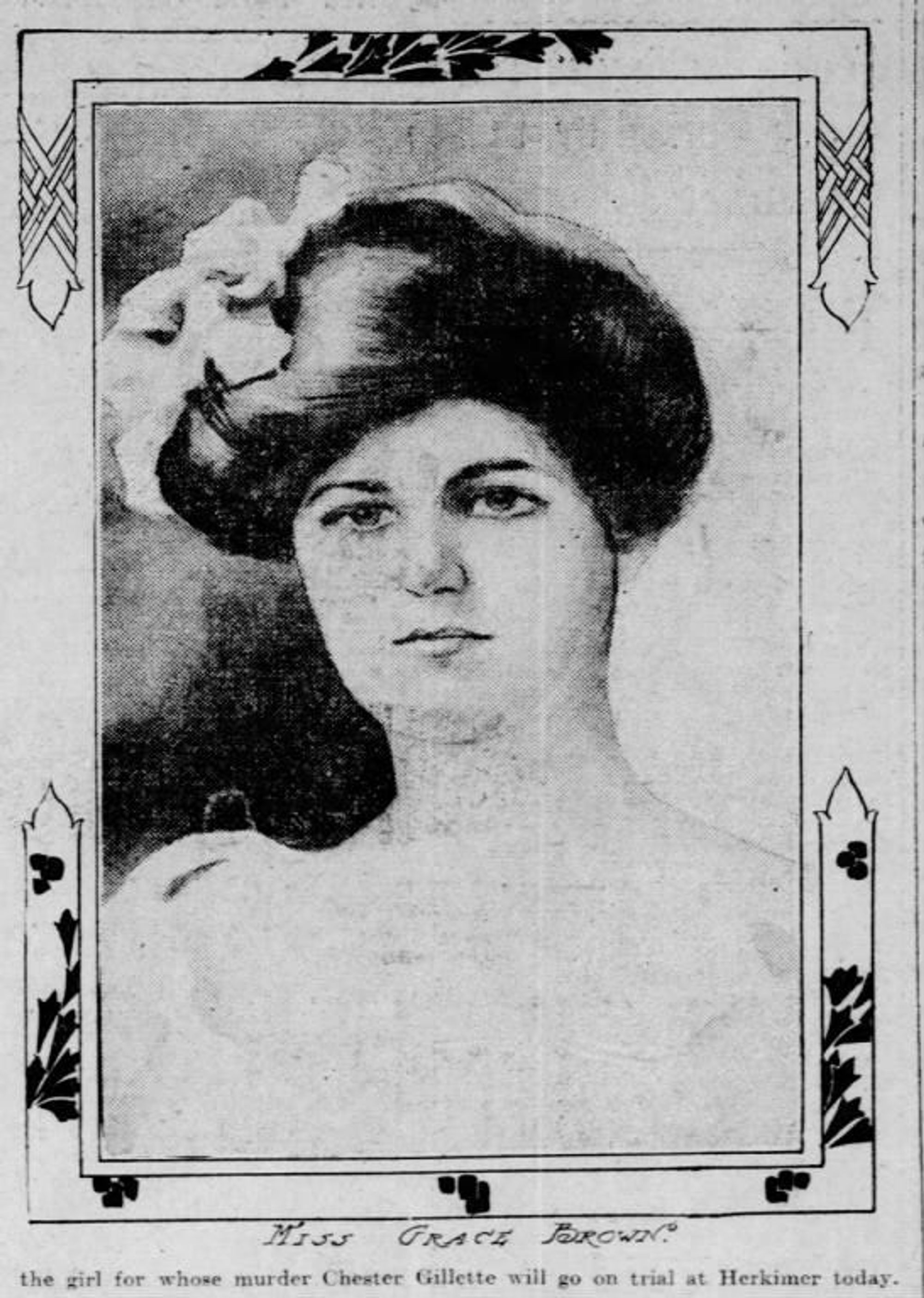
Trial
Chester’s sensational trial began on November 12, 1906, in Herkimer, New York, before Justice Irving R Devendorf. The prosecution proposed a theory that Grace’s pregnancy and insistence upon marriage drove Chester to murder her. But without a confession or a witness, District Attorney Ward needed to gather as much circumstantial evidence, and there was certainly no shortage of that.
Other hotel guests who saw the couple said that Chester spoke harshly to Grace during their stay, although they couldn’t hear the topic of discussion. Chester also paced the halls nervously before the boat ride. Ward wondered why an innocent man would check into a hotel under an alias. When Chester rented the rowboat, he had a tennis racket, which was in his possession when he was arrested. The tennis racket, according to the coroner, was likely the murder weapon.
District Attorney Ward presented Grace’s fetus as evidence, worried that the defense might deny the pregnancy. The courtroom was shocked. Chester’s lawyer, Mr. Charles D Thomas, promised Grace’s condition would not be disputed because her pregnancy had no bearing on the case.
The defense put forth the scenario that Grace was so distraught that she ended her life. Gillette testified under oath that Grace jumped in while he sat at one end of the rowboat and caused it to capsize.
Mr. Thomas had each of Grace’s love letters to Chester read aloud. Instead of finding Grace suicidal, the court empathized with her condition. Jurors, lawyers from both sides, and Grace’s family cried through the readings. Even Chester shed a tear as he listened.
In the end, the jury believed the story put together by the prosecution. Chester enticed Grace into the boat with promises of a romantic day. He brought with him a suitcase and a tennis racket. When Chester found a private place, out of earshot of other vacationers, he brought Grace ashore. Chester beat Grace with the tennis racket, ultimately killing her. He then dumped her body into Big Moose Lake and made his escape through the rugged, wooded trail to the Arrowhead Lodge. He arrived there bone dry — suitcase and tennis racket in hand. The murder of Grace Brown was brutal and thoroughly premeditated.
After four hours of deliberation, the jury found Chester Gillette guilty of first-degree murder. Justice Devendorf sentenced him to death by electrocution.
Upon hearing the verdict, Chester telegrammed three words to his father, “I am convicted.”
Aftermath
The murder of Grace Brown inspired Theodore Dreiser’s famous novel, An American Tragedy, which was later adapted into the film, A Place in the Sun. Grace’s funeral was held in her home town, South Otselic New York. She is buried in the Brown family plot.
After several failed appeals, 24-year-old Chester Gillette was executed by electrocution at Aubrey Correctional Facility on March 30, 1908. His last words were, “Tell my mother I am prepared to meet my God.” The exact location of his grave is uncertain. While he never publicly confessed to the crimes, a great-niece decided to publish his prison journal and personal letters in 2007.
Further Reading
The Last Titan: A Life of Theodore Dreiser, Jerome Loving
The Prison Diary and Letters of Chester Gillette, Chester Gillette
Adirondack Tragedy: The Gillette Murder Case of 1906, Joseph W. Brownell, Patricia Wawrzaszek Enos